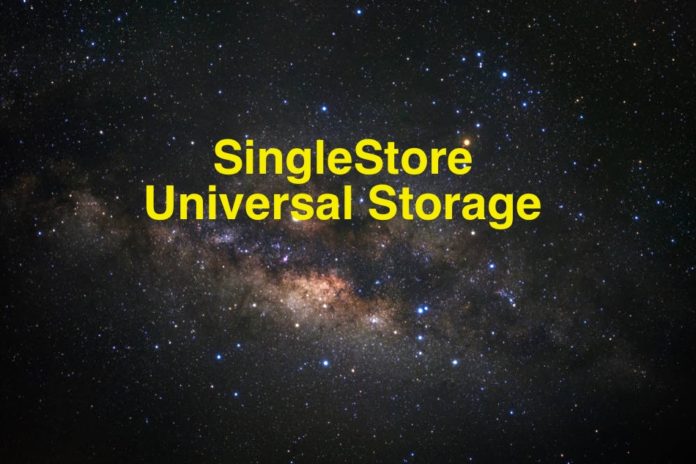Generative AI’s all-pervading influence has encouraged SingleStore to add new features to its Pro Max release to make AI app development faster.
SingleStore’s eponymous database combines real-time transactional and analytic database features and has hundreds of customers including Siemens, Uber, Palo Alto Networks and SiriusXM. SingleStore surpassed $100 million in ARR in 2022. In April last year it demonstrated how ChatGPT could be used to find data in SingleStoreDB. At the time it said SingleStore was the ideal database for private data search by ChatGPT, “given its abilities to store vector data, perform semantic searches and pull data from various sources without extensive ETL.” Now it’s added AI-relevant tooling to its latest database release.

CEO Raj Verma laid it on thick in a statement: “This isn’t just a product update, it’s a quantum leap … SingleStore is offering truly transformative capabilities in a single platform for customers to build all kinds of real-time applications, AI or otherwise.”
The new feature list includes:
- Indexed vector search. Support for vector search using Approximate Nearest Neighbor (ANN) vector indexing algorithms, leading to 800–1,000x faster vector search performance than precise methods (kNN). This hybrid (full-text and indexed vector) search that takes advantage of SQL for queries, joins, filters and aggregations, and place SingleStore above vector-only databases that require niche query languages and are not designed to meet enterprise security and resiliency needs.
- On-demand compute service for GPUs and CPUs. This works alongside SingleStore’s native Notebooks to let developers spin up GPUs and CPUs to run database-adjacent workloads including data preparation, ETL, third-party native application frameworks, etc. This capability is said to bring compute to algorithms, rather than the other way around, enabling developers to build highly performant AI applications without unnecessary data movement.
- CDC: Native capabilities for real-time Change Data Capture in (CDC) for MongoDB, MySQL and ingestion from Apache Iceberg without requiring other third-party CDC tools. SingleStore will also support CDC out capabilities to ease migrations and enable the use of SingleStore as a source for other applications and databases like data warehouses and lakehouses.
- SingleStore Kai. API to deliver over 100x faster analytics on MongoDB with no query changes or data transformations required. It supports BSON data format natively, has improved transactional performance, increased performance for arrays and offers industry-leading compatibility with MongoDB query language.
- Projections. Allow developers to greatly speed up range filters and “group by” operations by 3x or more by introducing secondary sort and shard keys.
- Free shared tier. SingleStore has announced a new cloud-based Free Shared Tier that’s designed for startups and developers to quickly bring their ideas to life – without the need to commit to a paid plan.
Nadeem Asghar, SVP, Product Management + Strategy at SingleStore, said “New features, including vector search, Projections, Apache Iceberg, Scheduled Notebooks, autoscaling, GPU compute services, SingleStore Kai, and the Free Shared Tier allow startups – as well as global enterprises – to quickly build and scale enterprise-grade real-time AI applications. We make data integration with third-party databases easy with both CDC in and CDC out support.”
SingleStore claims its Pro Max database is the industry’s first and only real-time data platform designed for all applications, analytics and AI. It supports high-throughput ingest performance, ACID transactions and low-latency analytics, and structured, semi-structured (JSON, BSON, text) and unstructured data (vector embeddings of audio, video, images, PDFs, etc.).
We are entering a period of NLQ (Natural Language Queries) with generative AI features added to databases, according to Noel Yuhanna, VP and Principal Analyst at Forrester Research. “Generative AI and LLM can help democratize data.”







